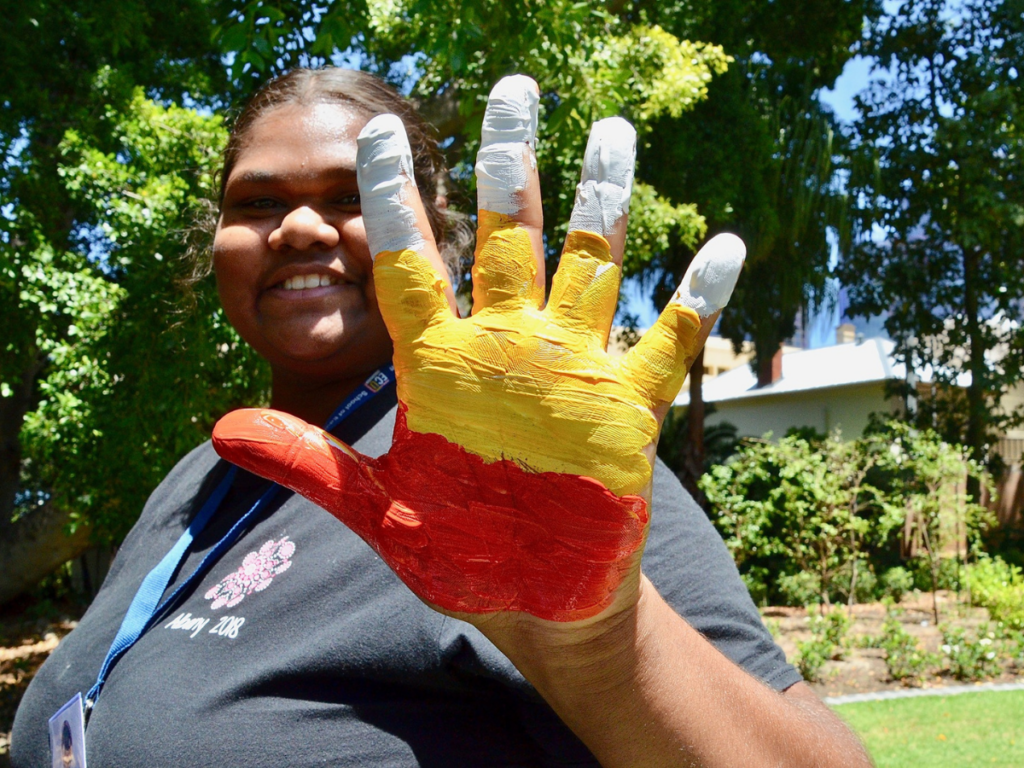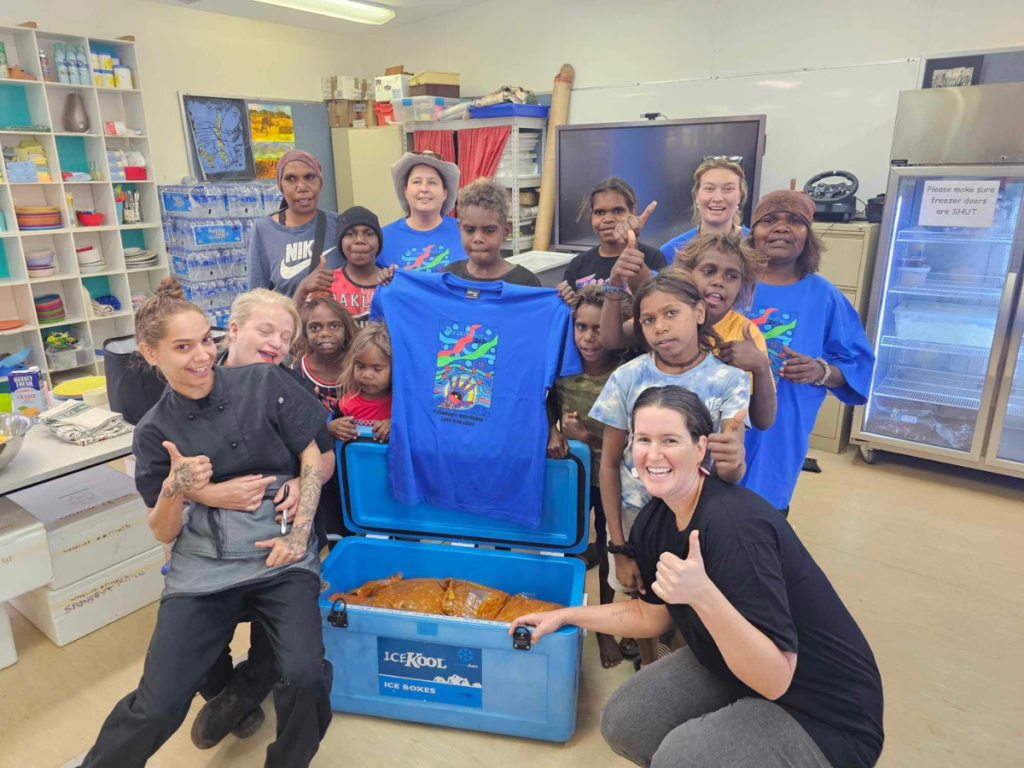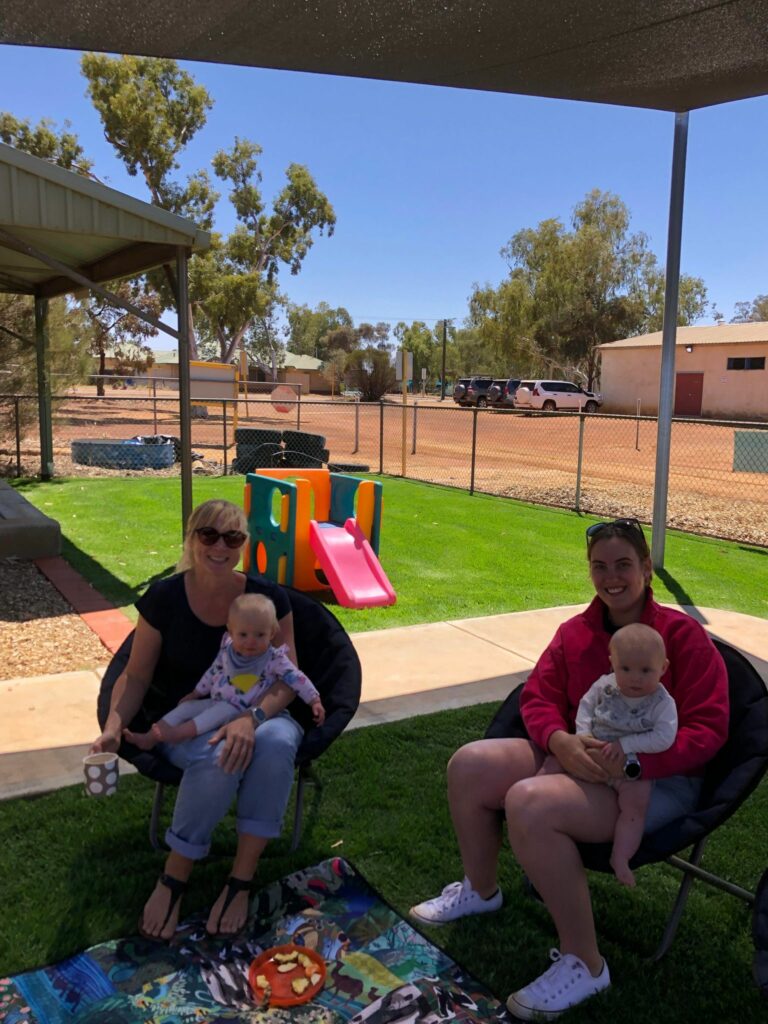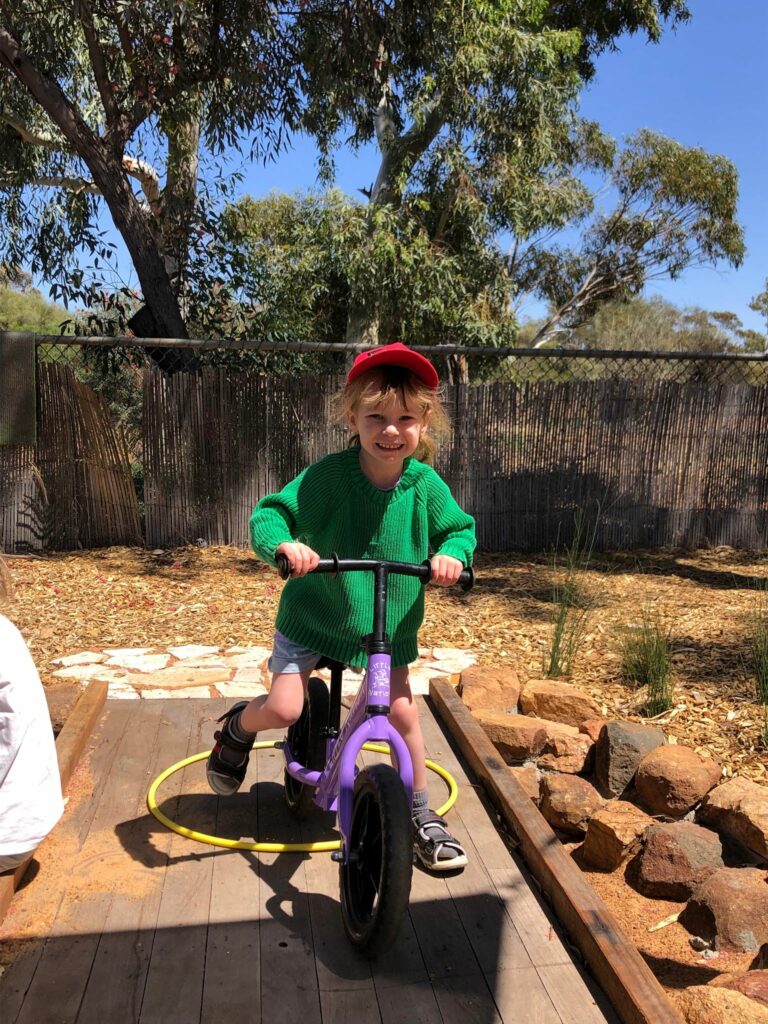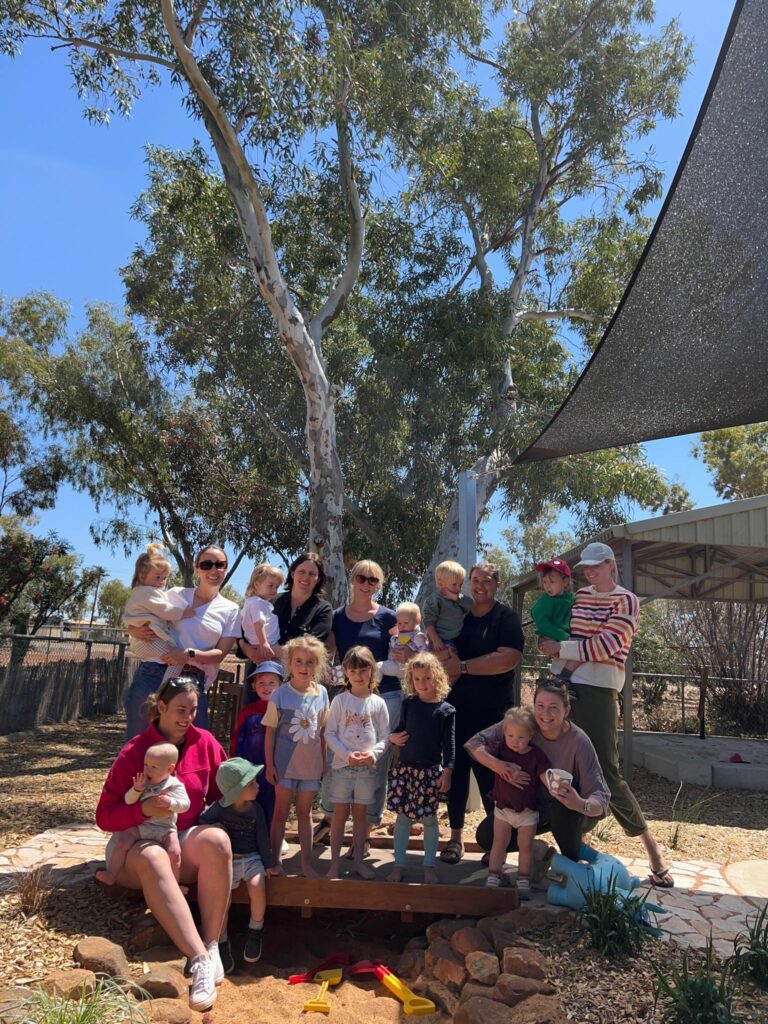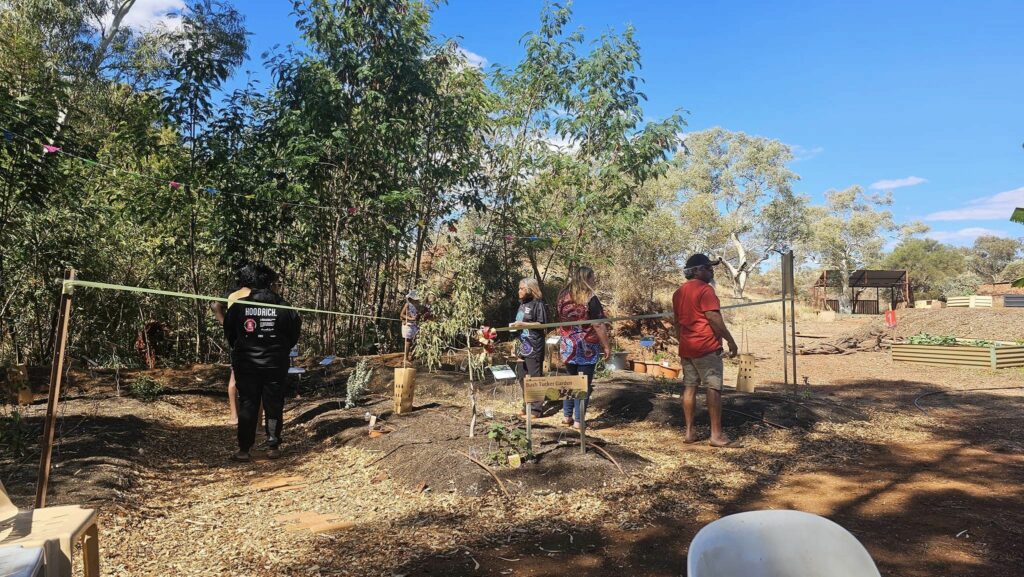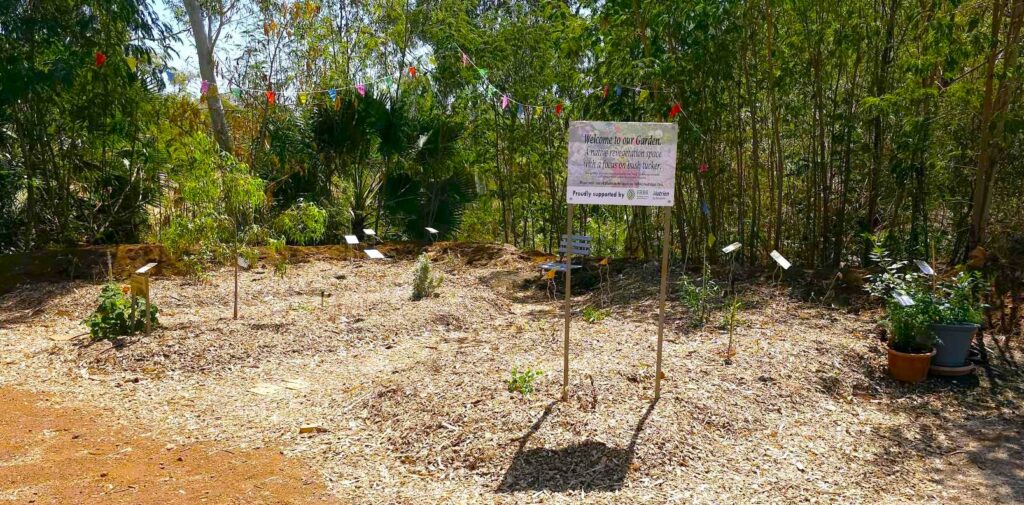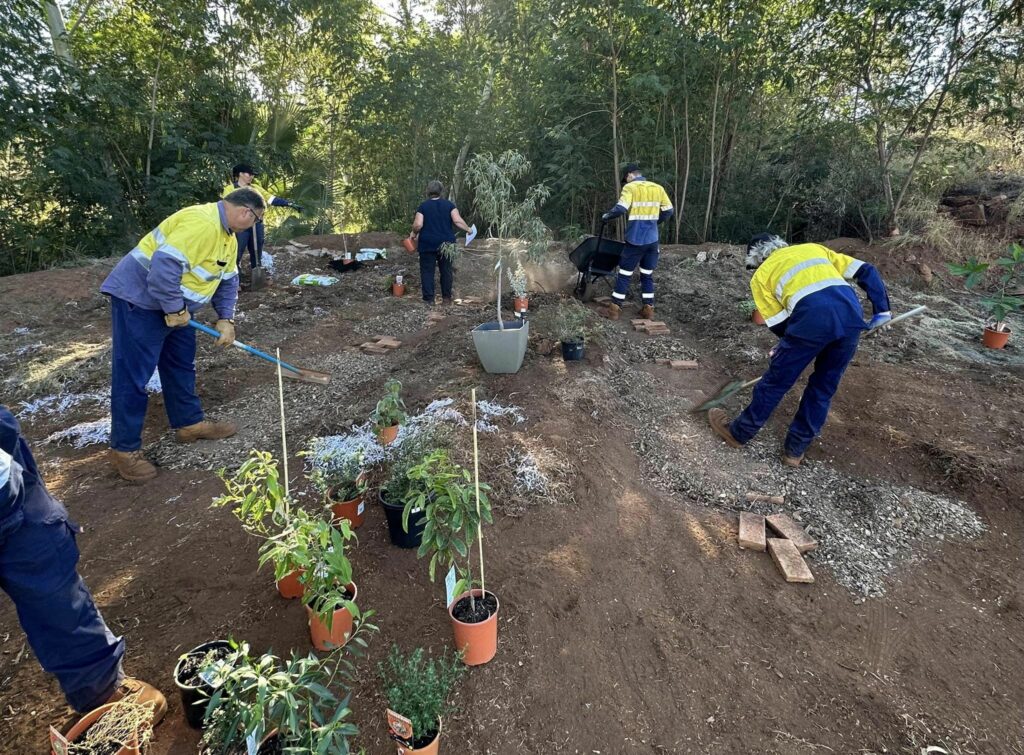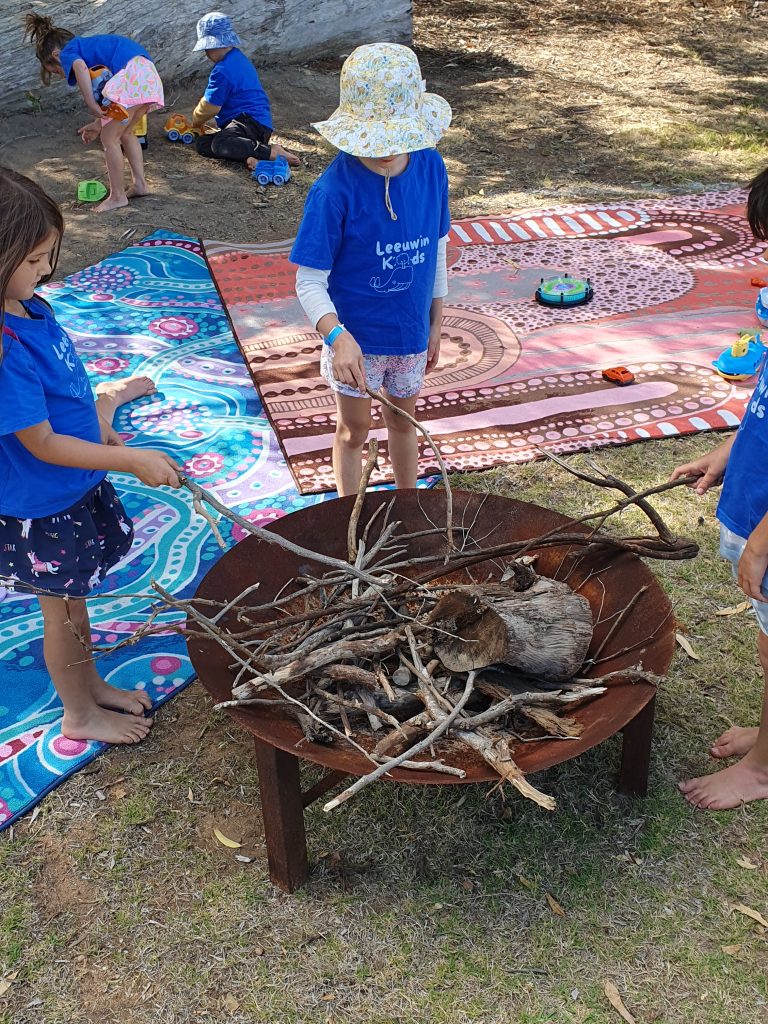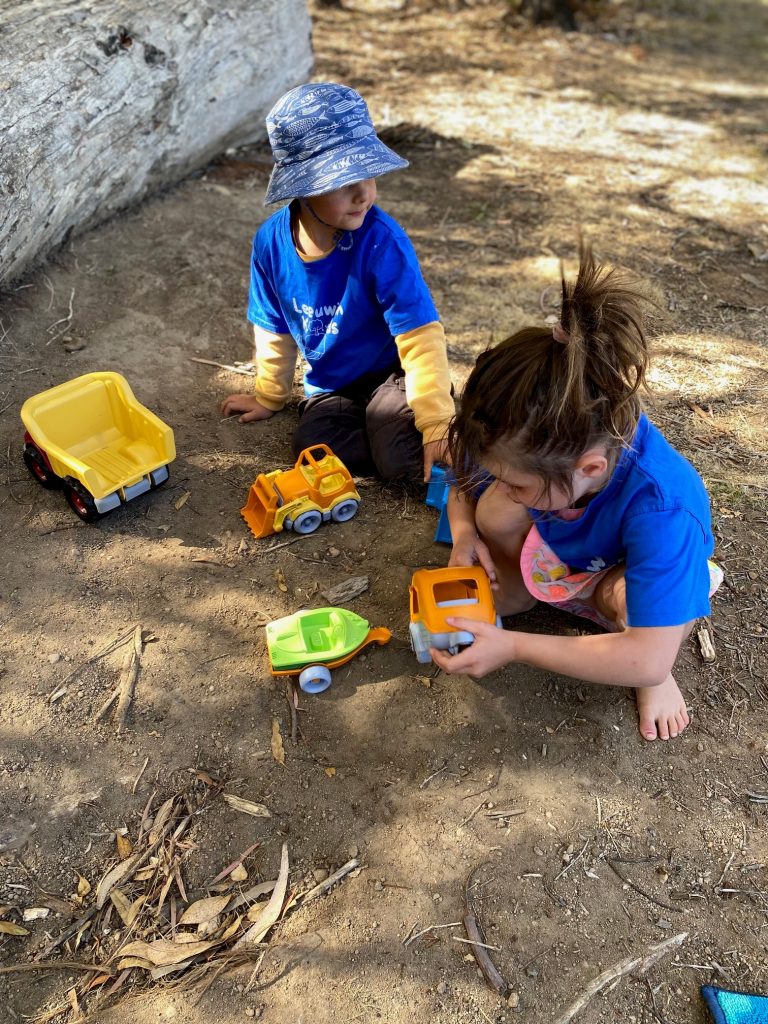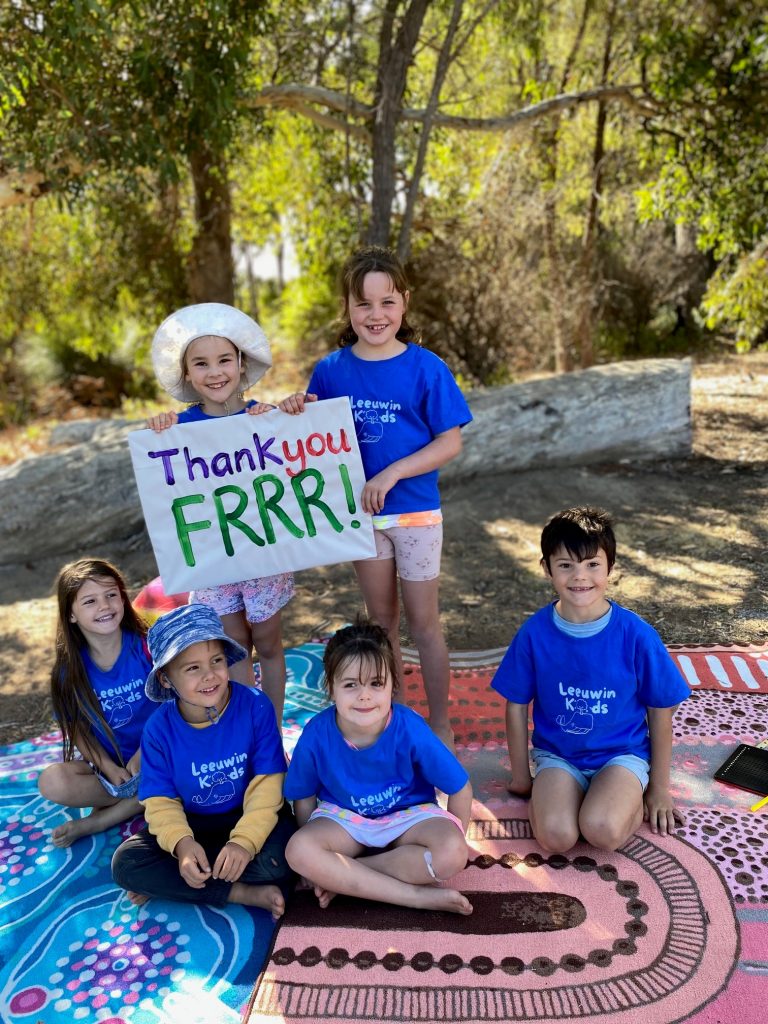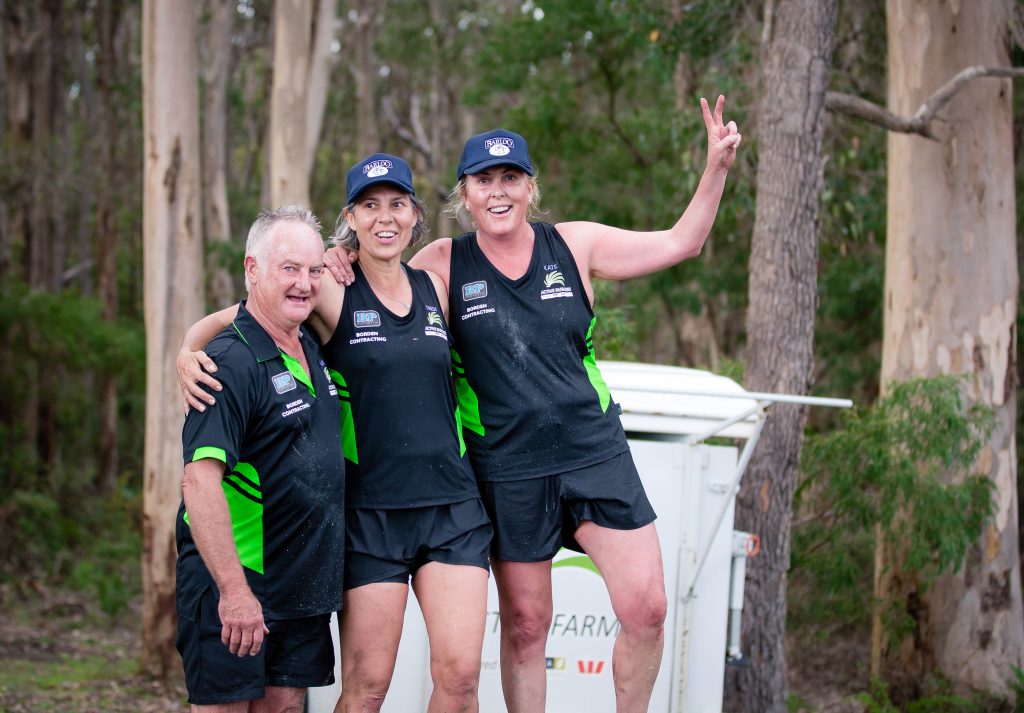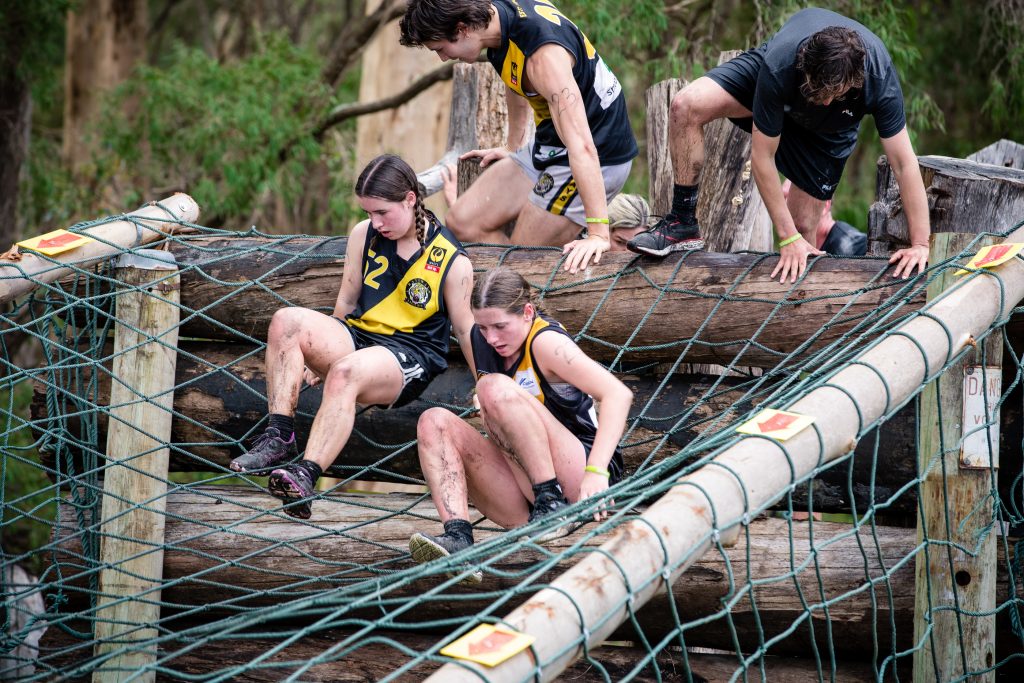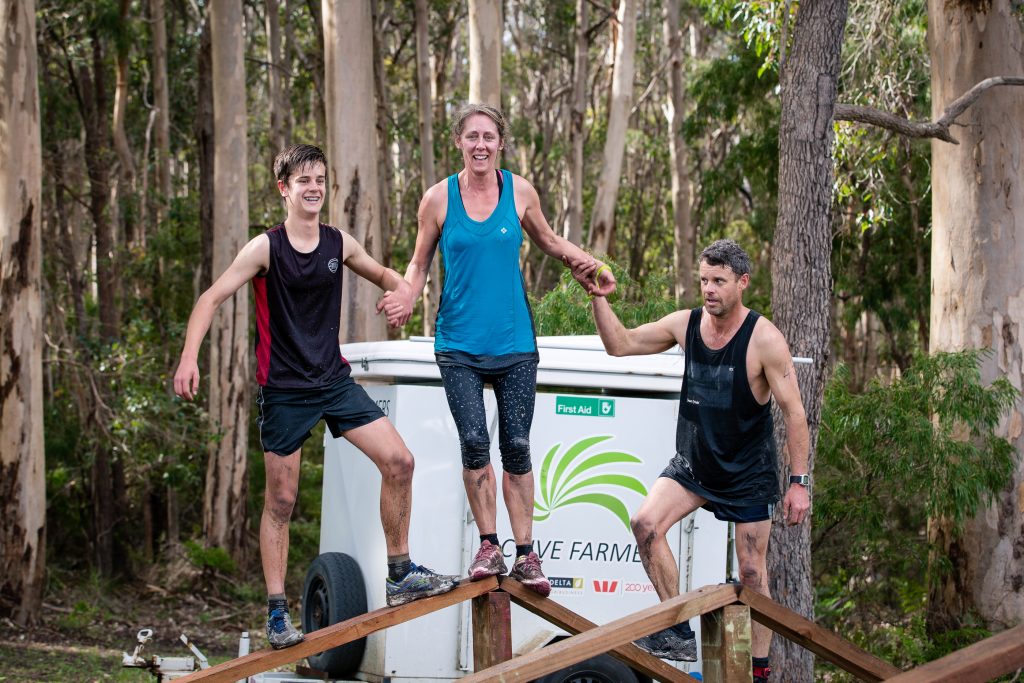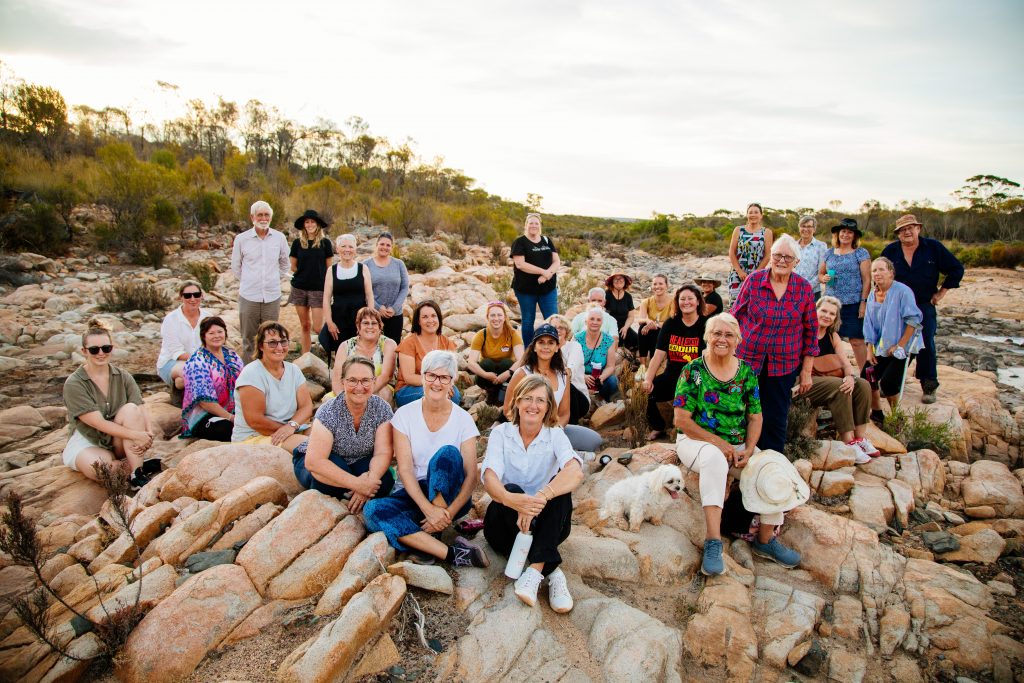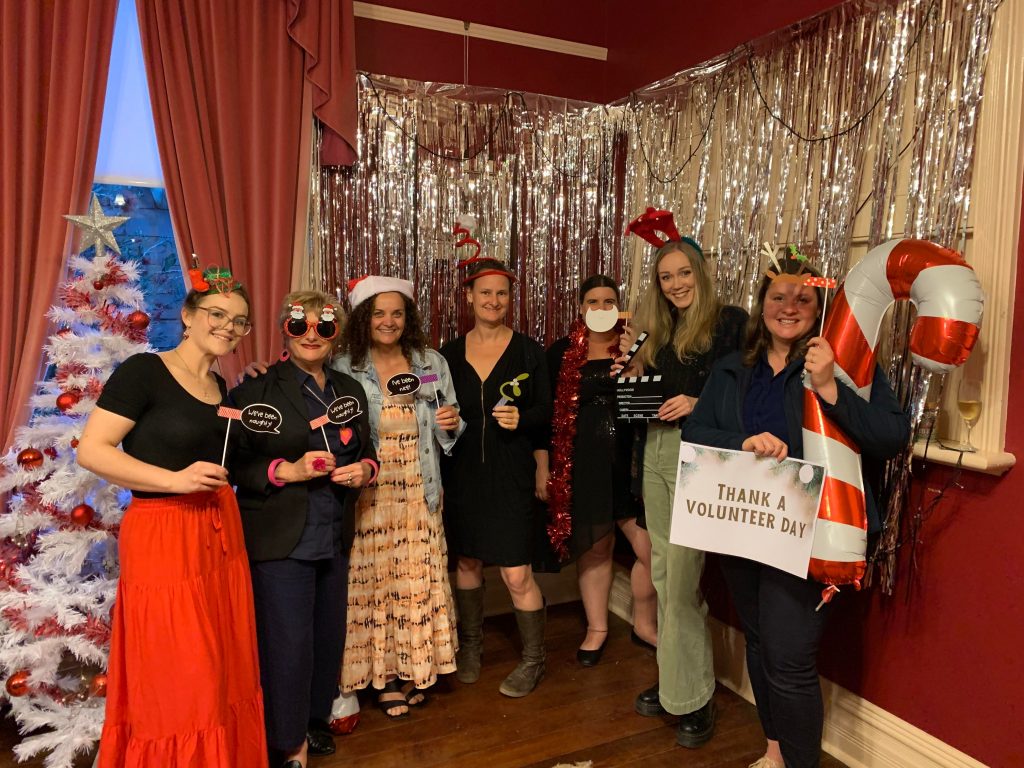Foundation for Rural & Regional Renewal (FRRR)
In 2013, a group of like-minded and passionate home economics teachers in Western Australia got together to create an organisation focused on training and assisting young people to develop career pathways in the education, food and hospitality industries.
The group, called Live To Tell Your Story Inc (LTTYS), runs an annual program called Prepare Produce Provide Djinda Ngardak. This culinary program first launched in 2017 and offers First Nations youth (aged 15-17 years) the opportunity to attend a life-changing, week-long camp that shines a light on First Nations culture and connection to land and food. Attendees from across WA are trained and mentored by some of WA’s top chefs. The program celebrates culture, food and storytelling, as well as developing skills primarily linked to employment pathways.
LTTYS received a $10,000 Strengthening Rural Communities Grant to assist in delivering a revised version of Djinda Ngardak alongside the 2023 Desert Dust Up. This annual event brings together eight schools from the Ngaanyatjarra Lands in the Goldfields-Esperance region of Western Australia for three days of activities.
The theme for the program was “Let’s Power-up for Dust Up”. In adapting to the requirements of Desert Dust Up, LTTYS worked closely with the Ngaanyatjarra Lands Schools leadership team, staff and cultural leaders to prepare nutritional meals, access local food sources and create a culturally responsive ‘food skills’ development program to complement both the social and educative aims of Desert Dust Up. The model combines traditional cooking practices with contemporary recipes and styles.
Over 17 days, the Prepare Produce Provide Djinda Ngardak team delivered workshops at seven campuses across Ngganyatjarra lands. Students and staff were active participants and there was a noticeable increase in school attendance as their trip progressed. The workshops were guided by Indigenous Elders and chefs using gathered bush ingredients and provided an insight into ancestral culinary heritage. Evening sessions were also held to support and educate teachers in the delivery of food-related workshops that they could incorporate in their classroom teaching. Additional community members, including police, nurses, Elders and rangers, also participated in the delivery of the workshops.
In addition to teaching the basics of food hygiene and nutrition, and being mentored by industry professionals, the culinary workshops delivered a range of other soft, transferrable skills, as well as sharing and exchanging cultural knowledge, skills and traditional practices, storytelling and enhancing culinary skills.
The program culminated in the delivery of healthy lunchboxes for participants at the 2023 Dust Up. Across the three days of events, more than 4,000 pieces of food were cooked and served to over 350 guests in the local and wider communities. The meals reflected learnings and the work achieved from the workshops on the Lands.
While the 2023 Djinda Ngardak Dust Up program was deemed an outstanding success, it certainly wasn’t without its challenges such as shifting timelines, changing numbers for catering and food supplies either missing or simply not available.
Catherine MacDougall, founder of LTTYS, said that the support from FRRR has provided an opportunity to build networks with additional community members that will be called upon for 2024 Dust Up.
“Relationships are key to the sustainability and growth of the program. FRRR has provided support funds to enhance the Dust Up program, originally developed to address the large issue of food insecurity in remote regions of Western Australia. Dust Up is now a significant program for the LTTYS organisation. It reflects the passion and dedication of our team.”
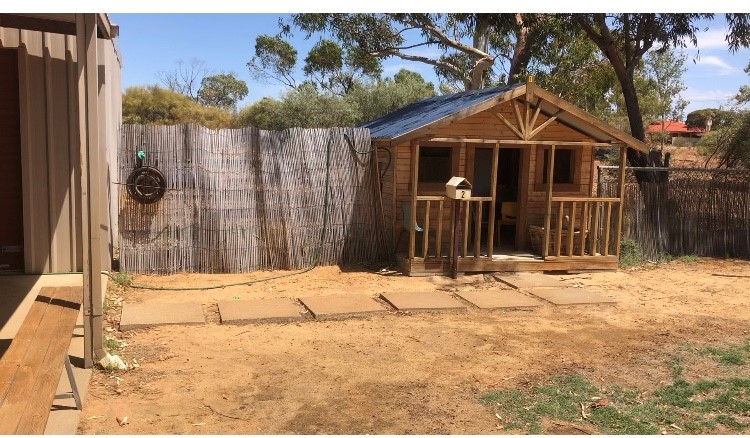 BEFORE
BEFORE
Morawa, a small town in Western Australia’s wheatbelt, lacks recreational and social opportunities for families with young children. With no cafes, the Morawa Playgroup, run for the last 40+ years, by mums (and the odd dad) serves as the primary gathering space for parents and caregivers seeking connection and support. However, Morawa Playgroup’s outdoor area was uninspiring, with a dying lawn and hard claypan soil.
Recognising the need for a vibrant outdoor space, the mums of Morawa Playgroup embarked on a project to transform their drab outdoor area into a nature playground. Collaborating with a local landscape designer, they developed a comprehensive plan to:
- Remove the old, inefficient irrigation system and replace it with a waterwise garden;
- Create a nature play space featuring sensory boxes, timber bridges, and a creek bed;
- Install shade sails to provide relief from the scorching sun and enhance the usability of the outdoor area;
- Establish seating areas for parents to connect and support each other while their children play.
The project unfolded over three years and received a boost from an FRRR grant of $9737, funded by Raine & Horne Foundation.
The completion of the project in September 2023 marked a significant milestone for Morawa Playgroup and the broader community. It’s now the only nature play space in the Shire, which spans 190km2, offering children and parents a welcoming and engaging environment. The shaded, waterwise garden has transformed the outdoor area, allowing children to play outdoors year-round and fostering a sense of connection among families.
Beyond the immediate benefits to the playgroup, the project’s impact extended to Morawa District High School, where reduced water bills freed up funds for educational resources. The positive effects of green spaces on mental wellbeing were evident at the opening of the new play space, signalling a brighter future for the community.
Despite the challenges of being a small, low socio-economic town, the project demonstrates the power of grassroots initiatives to improve quality of life. Morawa Playgroup’s success serves as a testament to the community’s resilience and determination to create a better future for its children and families.
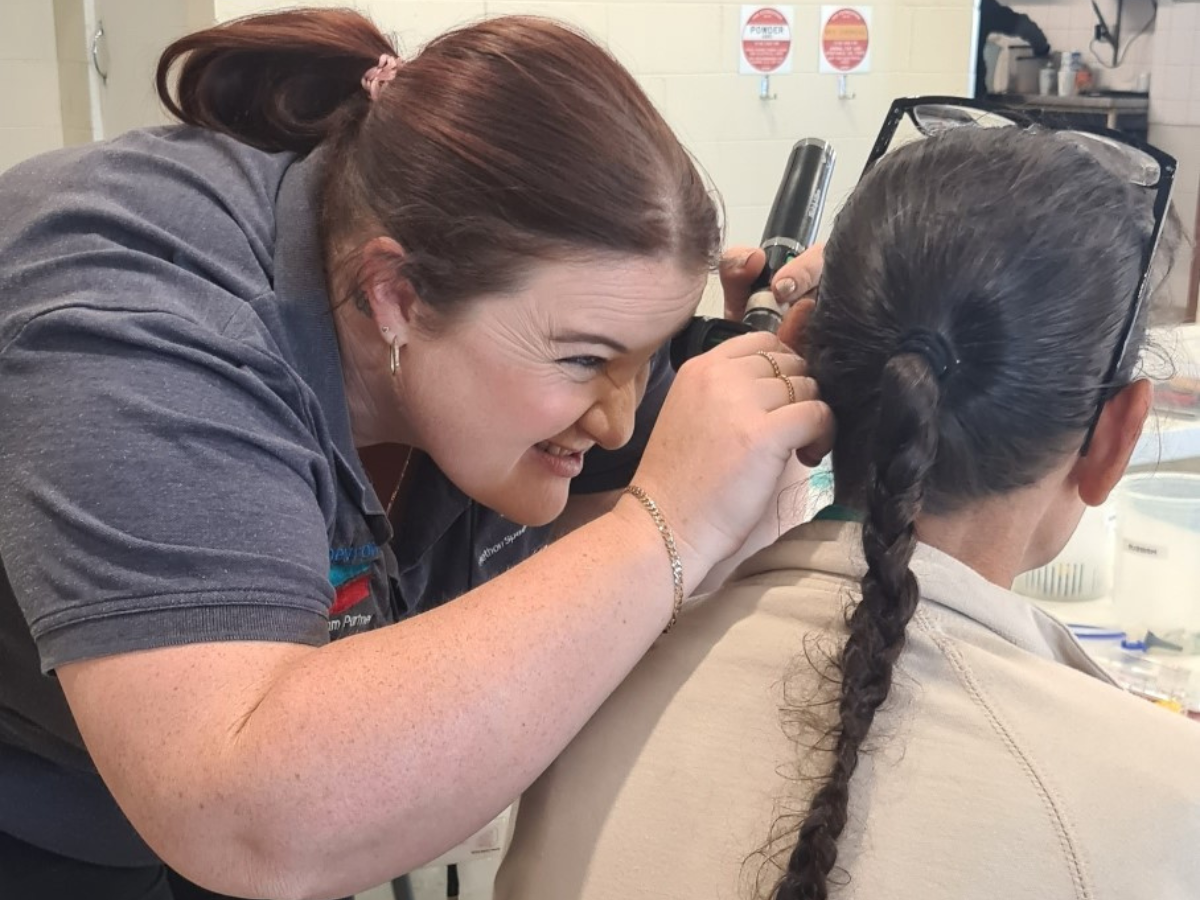
Thanks to a $8,904 SRC grant supported by the Sidney Myer Fund, Telethon Speech & Hearing Inc was able purchase cutting edge screening technology to streamline its early detection and surveillance of hearing loss at early childhood centres and primary schools across the Pilbara, Kimberley and Wheatbelt regions of WA. Many children in these regions are at risk of developing chronic ear health conditions, which impact all facets of their life including social, behavioural and academic performance, if not addressed early.
The HearX apps and four digital devices have enabled screening and clinical hearing tests to be undertaken in a faster, more reliable way. The software supersedes traditional devices, so that ear screenings can be conducted with a tablet. This was particularly important for Telethon when its regular ear health clinics had to be cancelled due to COVID and a major flood in Onslow. Fortunately, Telethon’s locally based team was able to upskill early years educators, teachers and nurses to undertake the screenings and Telethon’s audiologists could then analyse data and generate reports remotely.
“We have since integrated a tele-health component into our audiology service offerings, allowing our locally based teams to screen children and liaise with our Perth audiology team in real time. This has allowed us to diversify our service delivery modalities, ensuring more frequent hearing supports than would otherwise be on offer pre-COVID.”
The Fremantle Foundation was established in 2010, and seeks to create a thriving community through local giving and to address critical community needs by providing inspiring ways for people to give. They partnered with FRRR in 2020 through a Community Foundation Account, allowing them to support a wider range of community organisations conducting charitable activities in rural and regional WA, particularly those without their own DGR status – which is the majority of community organisations in regional and remote areas.
In FY23, for the second year in a row, the Foundation distributed grants exceeding $1 million across 62 grants, creating impact in the local Fremantle community, the broader metropolitan area, regional and remote WA, as well as in other parts of Australia.
While most of their donors focus on metropolitan areas, the FRRR Community Foundation Account specifically allows the Fremantle Foundation to support more projects in regional communities.
For example, the Northhampton community, located around five hours north of Fremantle, was badly affected by Cyclone Seroja in April 2021. A group of ex and current AFL footballers, all from around Northampton, set up a fund with Fremantle Foundation to support rebuilding in the township and the surrounding region.
Two projects that have been completed to date include the refurbishment of the Olgilvie Hall and construction of a remembrance garden at St Mary’s School. The garden includes new paving, bench seating and a selection of plants, including the much-loved rose garden. In addition, signage has been installed for visitors to gather and learn about the parish and impact of Cyclone Seroja.
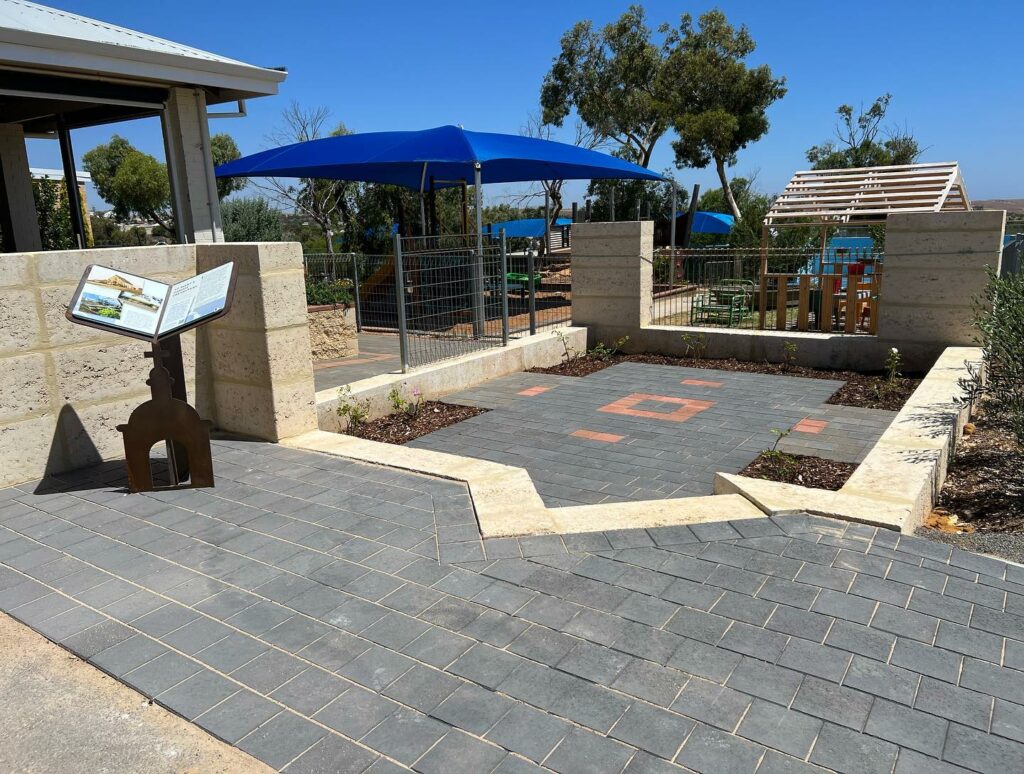
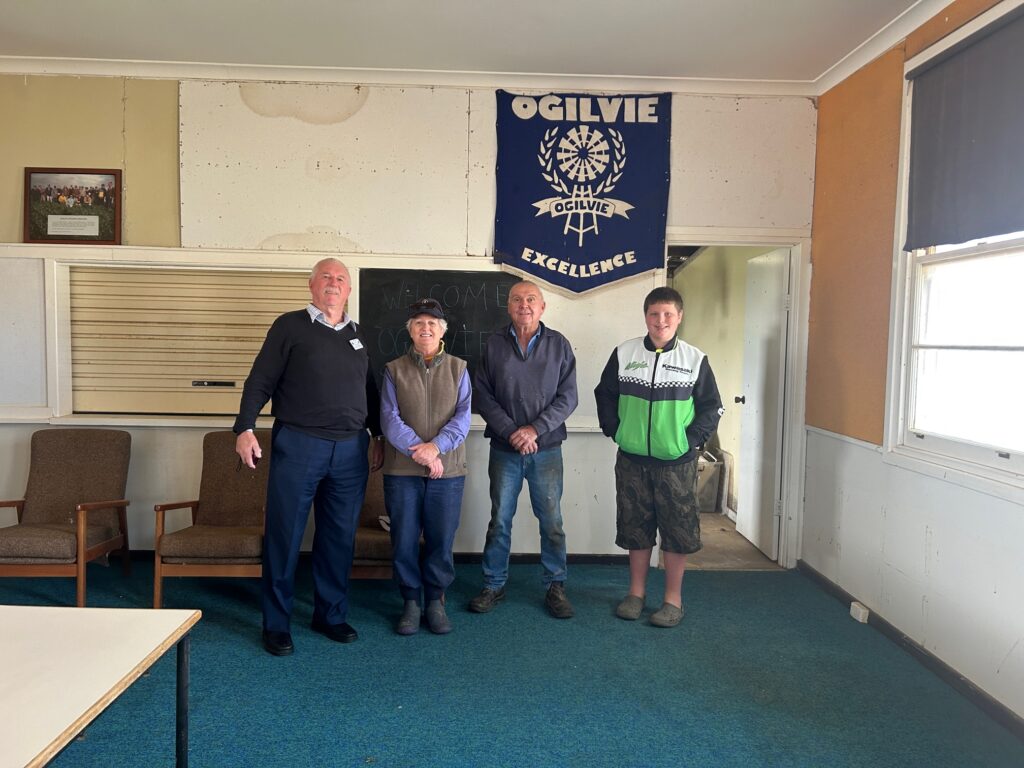
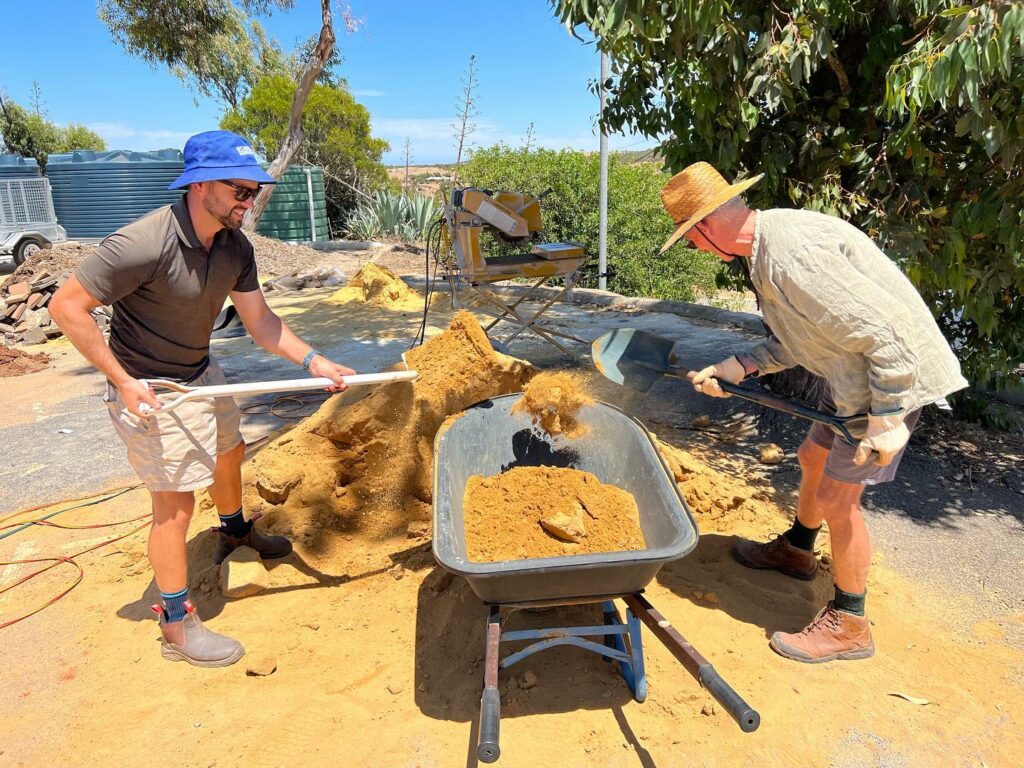
The Fremantle Foundation is also using their FRRR Community Foundation Account to ensure donated funds support the launch of the Peel Community Fund.The Fund was established in 2019 by members of the Peel community, with the aim of creating their own Community Foundation in the region. Thanks to their FRRR Account, Fremantle Foundation was able to award them a grant to support the development of critical infrastructure, including a website, communication and marketing plan, marketing materials, operational structure, committee governance and membership / giving structures.
In another example of their ability to inspire local giving, The Esperance Ag Fund was established in 2021 by the local agricultural sector in partnership with Fremantle Foundation, with the sole purpose of making a difference within the Esperance community. Collectively, the farming community, which is about 700 km from Fremantle, provides support to the wider Esperance region by funding projects that make a positive impact. They’ve recently awarded a grant to the Recherche Aged Welfare Committee for the installation of a reticulation system at the Alchera Aged Care Housing property.
Pauline Eves from Fremantle Foundation said they are most grateful for the assistance provided by FRRR to enable grants like these to happen.
The Tom Price Community Garden is, by their own definition, a place to nurture community spirit, build friendships and access fresh nutritious foods that are difficult to source in the remote Pilbara region of Western Australia. They do this by hosting working bees, workshops and events, which involve locals and ‘out-of-towners’ sharing the joy of gardening and its indirect benefit on individuals’ mental and physical health.
Thanks to a Nutrien Ag Solutions $5,000 grant, awarded in 2022 this grassroots community organisation improved their ability to provide fresh food, in particular native foods, to the community and strengthened local connections by constructing a ‘Bush Tucker’ garden.
The grant was used to purchase materials for garden beds and irrigation, as well as indigenous plants. With the help of many people from different backgrounds and ages, the organisation transformed a bare, neglected piece of land into a new, relaxing tranquil garden space. Their focus on creating a ‘Bush Tucker’ space has allowed collaboration with local indigenous groups to select native food plants that thrive in the area. This collaboration not only helped volunteers connect with local First Nations people but also increased their knowledge about identifying and using indigenous foods for both nutrition and medicinal purposes.
Tania, the President of the Tom Price Community Garden Inc, wrote in their final report that it’s only when this knowledge is shared, the benefits of bush foods are passed to new generations.
“In the short term, we have used this project to educate and teach participants concepts such as regenerating soil from composting and utilising plants local to the area, however the opportunities are endless.”
Another advantage of the ‘Bush Tucker’ garden is that it has provided a space for the Rangers 4 Life group, a group of young indigenous children, to utilise the garden for learning and engaging in activities in nature. There are also plans in place for the Ashburton Aboriginal Corporation to be permanent users of the space as a skill building and social program for their members.
As the garden blossoms and start producing, the community connection is also growing as this community organisation hoped. At the Grand Opening of the site, members had a chance to reflect on the involvement of so many people along the way, including children who were wanting to know more about the different plants.
Karridale, in the Blackwood region of southwest Western Australia, is home to a rich agricultural community. Established in 1991, the Lower Blackwood Land Conservation District Committee (LBLCDC) draws its membership from local landholders who have an interest in sustainable agricultural and land management practices that will protect and conserve their special environment.
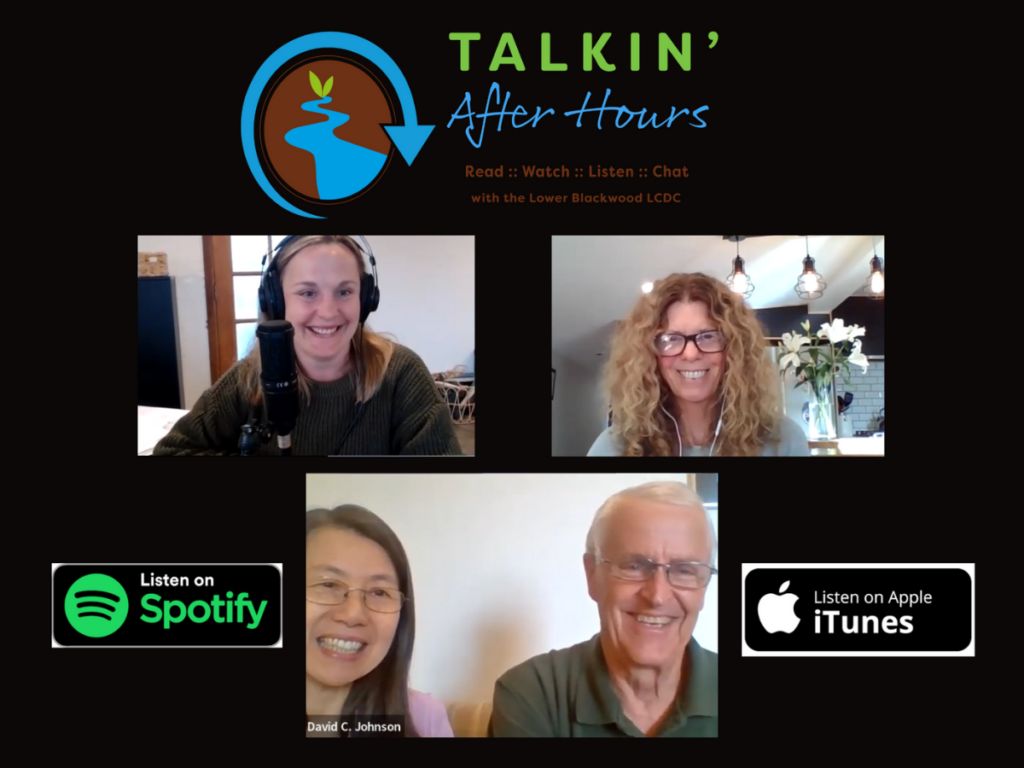
There is growing interest and awareness among local farmers of regenerative agriculture principles as a way to sustainably manage their land and productivity and strengthen their drought resilience. However, the LBLCDC identified a need for greater understanding of these principles, as well as how to implement them.
They noted a lack of access to resources and expertise to support farmers in creating resilient and responsive landscapes. They also saw the need for more peer-to-peer support and believed that conversations could combat isolation and foster a sense of community among local farmers.
In 2022, the LBLCDC decided to develop an online community forum and information hub that could bring the community together to connect and learn. Supported by the Australian Government’s Future Drought Fund, FRRR provided $49,850 through the Networks to Build Drought Resilience program to assist the LBLCDC with the design and delivery of their digital platform.
Driven by a content manager, the establishment of their online community (known as Talkin’ After Hours) allowed for the development of significant new drought resilience content. Although hampered by short timelines, the platform produced and delivered six webinars and five podcasts, with a further podcast, six written pieces and six short videos also developed and ready for release over the coming months. Each piece of content focused on one farm landscape management component that assists land managers to prepare for drought.
Feedback from platform users has been incredibly positive, with one user noting that they got more useful information from one 90-minute Talkin’ After Hours webinar “than in a whole year’s worth of ag school”.
“The easy access and on-demand format of the content allows landholders to access learning opportunities and information at a time and place that is convenient for them. It also offers the ability to share ideas, discuss and compare notes on issues, actions and solutions with other community members in a safe and convenient space, and promotes a more adaptable and resourceful community.”
The LBLCDC has been excited by the level of engagement with the platform, based on webinar registrations and content download figures. Across the six webinars delivered, there were 525 registrations and 11,175 YouTube views. In addition to this, there were 1,482 downloads of the podcasts. There was an even split of male and female participants involved, with a broad range of community members engaging with the project. While 70% of participants were between 45-64 years of age, it’s anticipated that given the online delivery format of the project, engagement will continue to grow, particularly with younger community members as they access podcasts and webinars recordings.
This new network is expected to expand as new community members become aware of the project. Going forward, they intend to continue expanding the platform to reach more community members as they release their developed content, and also intend to engage with their local Indigenous group, the Undalup Association Inc, for their input and ideas on content.
Talkin’ After Hours has increased the social connection of Lower Blackwood farmers and landholders. The interactive and engaging platform has helped build their resilience to future drought and fostered community and connection by developing a cohesive, relevant and applicable resource base for individual and community learning.
“The ability to be able to share ideas, discuss and compare notes on issues, actions and solutions with other community members in a safe and convenient space has and will promote a more adaptable and resourceful community.”
Environs Kimberley (EK) is the peak not-for-profit environmental organisation for the remote Kimberley region of Western Australia. Since 1996 EK has been dedicated to conserving and protecting the Kimberley’s natural, environmental, and cultural values. EK has supported and coordinated cultural-natural resource management (CNRM) projects in the region since 2007.
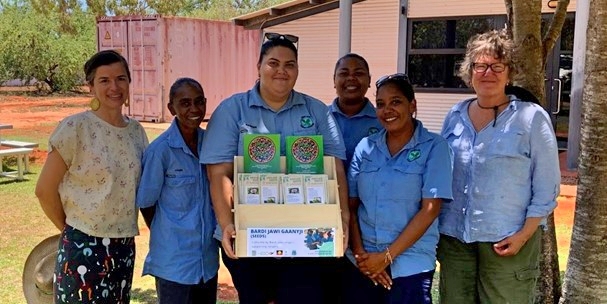
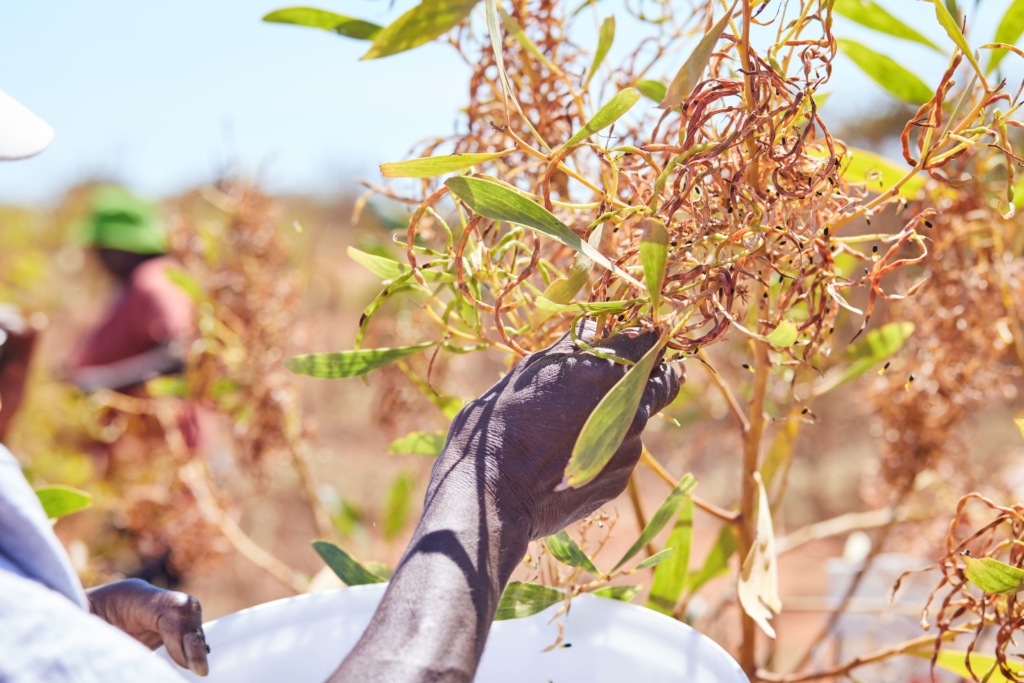
Nyangumarta seed collecting 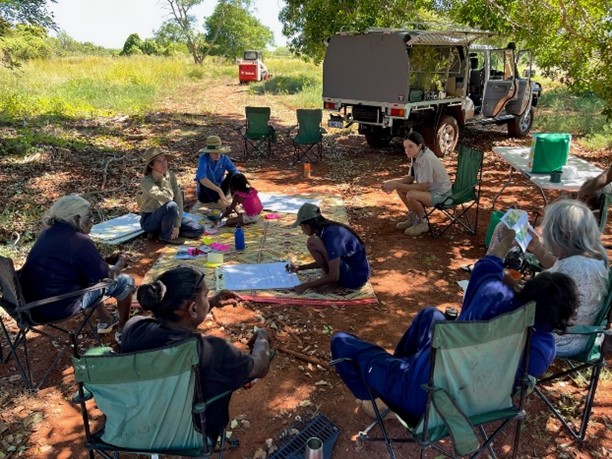
Karajarri Workshop, Purnturrpurnturr
EK collaborates respectfully and over the long term with Aboriginal rangers and their communities, First Nations groups, community groups, government, and scientists to apply traditional knowledge and the best scientific methods to CNRM projects including: invasive species and fire management; ecosystem restoration, threatened species, ecological survey, and monitoring; eco-cultural documentation and education.
EK’s Kimberley Community Seedbank (KCS) project was established in 2015 and EK has been working to develop the Seedbank into a sustainable social enterprise that furthers the conservation and protection of the Kimberley’s incredible natural and cultural values. In 2020, Environs Kimberley received a Strengthen Rural Communities (SRC) grant of $24,995, thanks to John T Reid Charitable Trusts, as funding towards Strengthening the Kimberley Community Seedbank: a sustainable social enterprise project.
A First Nations-led bush resource industry can support Aboriginal communities across the Kimberley to participate in economic development on their own terms and to undertake meaningful and sustainable work on Country. As a backdrop to this, the Australian bush resource industry has seen enormous growth over the past few decades, but despite this, a national survey by Bushfood Sensations (2019) found only 1% of the industry was led by First Nations people.
Hence, EK’s Sustainable Communities team has worked to build capacity for First Nations people to engage in and lead a Kimberley native plant resource industry. EK worked with four ranger groups to co-design business plans and complementary industry resources for two emerging social enterprises: Kimberley Seeds, and Wattleseed Collective where EK has supported Aboriginal collectors to develop skills in the exciting bush food and restoration industries to produce sustainable, socially responsible products.
The grant funded Environs Kimberley project management, co-design workshops, and the development of viable business models. EK delivered training to communities and ranger groups across the West Kimberley and established seed storage, roasting and cleaning infrastructure.
The Bardi Jawi Oorany Rangers, Karajarri Rangers, Nyangumarta Rangers, Yawuru Country Managers and Yiriman Women’s Bush Enterprise’s provided in-kind time and vehicle use for seed collection. EK provided in-kind time, seedbank and seed collecting equipment and coordinated volunteer activities. EK supported groups to develop their own business plans, financial models, packaging, marketing materials and a sales strategy.
EK coordinated the first pilot for commercial scale harvesting of wattleseed in 2022. The harvest saw the Wattleseed Collective gather and clean 40 kgs of (mostly) soap wattle (Acacia colei). This amazing effort resulted in sufficient product to enable Environs Kimberley to enter a product development phase and begin a process of securing access to markets for the coming year’s collections.
EK developed resources including a business plan template, a wattleseed harvesting guide, and wattleseed cleaning guide which are now available to share across the network of Kimberley-based Aboriginal-led businesses and individuals.
First Nations ranger programs are major employers in remote communities. By continuing to increase the capacity of the rangers in seed collection and social enterprise development, and working with other community members, Environs Kimberley is backing stronger communities to engage in the development of local, sustainable, conservation and cultural economies.
Augusta is a town in south-west WA, 40km from the nearest town of Margaret River, which is a larger service centre. Whilst traditionally a town with a reputation for having a high proportion of retirees, numerous young families have returned to Augusta where they grew up, or have taken a sea-change post-COVID.
When the only childcare centre closed in Augusta, families were faced with lengthy travel times to Margaret River, and this has had a flow-on impact on employment, limiting opportunities to access work, and for employers’ to fill staff vacancies.
A group of committed parents, local business owners and early childhood educators got together to set up an incorporated association to open a community-run, not-for-profit centre with 24 places to meet the urgent need for childcare. They successfully navigated the requirements and approvals of the Education Care Regulatory Unit and the Federal Government Childcare Subsidy program however, increased building costs compounded by development approval delays means the new centre is yet to open.
The best laid plans of mice and men…
Initially the project intended to purchase resources to outfit the new centre. Instead FRRR was able to work with the group to progress a variation to the original project, to help them adapt to their changing circumstances.
The group instead launched a vacation care service for children, kindy to 12-year-olds, filling a gap in the community’s childcare needs. They used a $10,000 Strengthening Rural Communities grant, funded by FRRR, to purchase educational resources that are of a higher quality and more durable than the donated and second-hand older toys and cheaper equipment that had previously been used.
These resources will last longer and extend the children’s imagination, and have added real value to the program and been much loved by the children. They will also be able to used by the new childcare centre when it eventually does open.
Kylie Lucas, Treasurer of the Augusta & Districts Childcare Centre, noted in their acquittal: “We are very grateful for the donors and team at FRRR for enabling our project to be delivered with better resources, and it has made a real difference to the kids, working families and community members in our little town. The committee appreciated FRRR’s flexible and supportive approach.”
According to Beyond Blue, one in seven Australians will experience depression in their lifetime. For people living in remote, rural and regional areas, access to adequate physical and mental health care can be tricky. In fact, getting people to talk about mental health issues can be just as hard as finding the appropriate support.
Organisations like Active Farmers are working hard to breakdown the stigma surrounding mental health and raise awareness and understanding of the benefits of regular exercise and healthy eating. One way they do this is by hosting events like the Active Farmers Games.
In 2019, the inaugural Active Farmers event was held in NSW, and again the following year. Both events were a total success with people travelling from all over the country to attend. Post-event feedback strongly endorsed running it again, but suggested it should head to Western Australia.
The small town of Torbay, located in the Great Southern region, was selected to host the Games. The region is dominated by farmland, which produces livestock, dairy, wool and grows crops. Known as one of the most productive cereal grain and pastoral areas of the state, they have also been severely impacted by drought, bushfires and of course COVID-19. On top of this, the population of the Great Southern area of WA is predominantly aged over 50 years, with the proportion of adults aged over 65 years projected to increase by 54% over the next five years. For people in this age group, physical health concerns can often be managed by regular physical activity and exercise. This demographic also has a large population that lives in regional Australia, where they may lack access to health and wellness services due to remoteness.
The one-day event involved traversing a 3.5km farm-inspired obstacle course (think hay bales, tyre stacking and fence climbing!). The aim was to raise awareness of the importance of physical and mental health and to promote connectedness in the bush. The course was designed to symbolise real life obstacles and how we are able to better overcome these obstacles if we have a team of people around us.
In total, there were 30 obstacles that 150 participants had a go at. There were three teams that consisted of men, women and children. The course was designed to accommodate everyone with the youngest participant being six years old and the oldest participant in their 70s. The event was also a tremendous show of community participation with 40 volunteers to help things run smoothly and another 90 spectators who came to cheer the participants along.
Using a $6,340 Strengthening Rural Communities (SRC) grant, funded by FRRR, Active Farmers were able to host a successful event that fostered a strong sense of connection and joy within the community and surrounding areas.
They were also able to raise much needed funds to establish the Active Farmers group fitness classes in up to six additional locations in WA. Check out this fantastic video that showcases the day’s activities.
Ravensthorpe Community Resource Centre (CRC) Inc is integral in coordinating and managing community and business events throughout the Ravensthorpe Shire in Western Australia. They have expanded to the Fitzgerald Business Network, which is focused on connecting and skill building businesses throughout the district including social development activities such as Study with a Buddy After School Program; Seniors Computer Club and major annual events such as Wellness Weekender and Galaxy Country Carnival and Street Parade.
A $5,000 Nutrien Ag Solution Community Grant in 2021 provided the opportunity to improve community organisations’ employee and volunteer management. The grant funded bringing in a local human resources consultant to develop tailored solutions for paid and unpaid personnel in local community groups, run workshops on volunteer management software systems and set up a central register for formal volunteer documents. Additionally, a project manager was paid to plan and co-ordinate the work.
Volunteers are the lifeblood of many communities. However, this is a great example of how funding can temporarily increase organisational capacity to complete work effectively. In this case the original plan of completing one group training was not possible so several sessions had to be coordinated to ensure all local community groups could participate.
There have been some great outcomes:
- Position descriptions and employment contracts were developed for seven community groups or volunteer programs, including the Community Spirit Committee and Ravensthorpe Regional Arts Council.
- A volunteer certificate register was developed and promoted. It has benefited three groups (and will continue to benefit others) who have volunteers that require Working With Children Checks, Responsible Service of Alcohol Certificates and that want to store these certificates in a central location.
- Two workshops on cloud-based volunteer management options were delivered.
Chairperson Tracy Ebert was delighted with the project outcomes. “We have developed a suite of tailored resources for some of our most important local community groups. The volunteers on these groups now feel much more confident to engage volunteers and paid staff knowing that they are meeting all legal requirements. The volunteers have enjoyed having very clear expectations and have remained engaged. There are now at least three other groups in the community using the volunteer software system presented to manage volunteers and the reporting to committees and management of tasks has been vastly improved in these instances.
“And that’s not all,” she continued. “Excitingly, we have been able to provide these resources to a region-wide project – South Coast Enviro Experiences – with similar objectives (as the challenges with managing volunteers are universal), which means they don’t have to reinvent the wheel and can direct their resources into other essential elements of the project which we will benefit from.”
There are learnings in all projects and the Ravensthorpe CRC are conscious of the security of the data they hold on behalf of their volunteers, and have taken all measures for its secure keeping.
Overall, 60 people from Ravensthorpe community organisations directly benefited from the training and presentations, and there is the ongoing benefit to human resource documentation and administration skills to support current and future employees and volunteers in Ravensthorpe.


